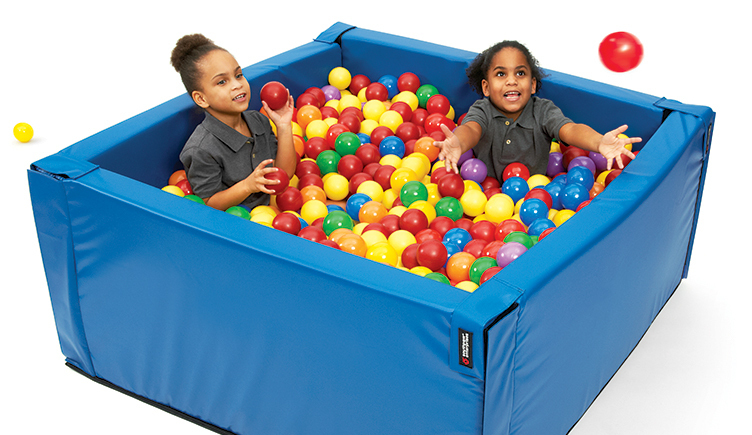A doctor named Stuart Brown has said, “Play leads to brain plasticity, adaptability and creativity. Nothing fires up the brain like play.” So, I ask, what are we doing as parents, teachers and therapists to make sure we encourage development and learning through play? With the decrease of recess time in schools and the increase of overbooked schedules and use of technology, how do we ensure beneficial play still happens across the various stages of childhood? With holiday shopping in full swing, now is the time to check those lists, making sure we are buying toys that encourage play.
Infants: When shopping for those little ones in your life, focus on toys that promote hand development and early movement skills. It is important to balance the use of “containers” such as swings, bouncy chairs and activity standers, so a large blanket sprawled on the floor to play is a great place to start. Giving gifts such as rattles that vary in shapes and sizes, as well as design, helps to keep little ones entertained and develop grasping and visual skills. Mirrors are always a hit, as infants find enjoyment in discovering themselves. In addition, a shape sorter, stacking rings and soft blocks provide fun and begin to challenge their hand-eye coordination as well as brain development. To encourage their movement skills, a fun play tunnel to crawl through or a walking toy are sure to be a hit. Similarly, you cannot go wrong with an entertaining board book.
Toddler: These little ones are super active and ready to move and play, so keeping them entertained could be a full-time job. At this stage finding good building toys, both stacking and interlocking, help with hand-eye coordination as well as creativity. This is a great stage to focus on toys that encourage pretend play, such as favorite character figure sets, kitchen sets, baby dolls and vehicle play sets. In addition, having toys that encourage movement, such as bikes, balls and scooters, will keep them on the move while developing coordination and gross motor skills. Early board games are ideal for developing skills such as colors and numbers as well as attention and direction following. In addition, puzzles, drawing-activity materials and books encourage brain development and fine motor skills.
Young Child: These children are enhancing the skills developed in the earlier stages while developing more personal likes and interests. Trying to maintain balance of technology use starts to become difficult. Keeping them entertained with arts and crafts helps with creativity, fine motor skills, and attention and focus. There are so many pre-boxed sets on the market today that you can find something to fit everyone’s interest. In addition, this is when more interest and attention to gross motor enhancement begins, so upgrading bikes and scooters and beginning to focus on sporting equipment can be added to the list. Board games that encourage more strategy as well in increased time to focus and attend are great for family and friend interaction. During this stage, we will see girls increase their doll play, including Barbies. More-demanding building toys and interlocking puzzles are great to challenge those visual and fine motor skills.
Middle School: This is when it becomes a bit more difficult to shop. As children develop out of character-based likes and you begin to see the house lessen its toy supply, we are often left to gifts of clothing, technology or gift cards. However, there are still some great things that can be wrapped up that address play for this stage. From enjoying puzzle games and brain teaser sets to taking on more strategic board games, kids at this stage still have some ”play” left in them. This is a great age to focus on sport activity needs, such as getting them the equipment they need for basketball, volleyball, football, etc. Gifting them money or gift cards for experiences to places like bowling, a trampoline park or a favorite lesson also helps with developing socialization and keeps them active. So, sometimes we just need to think outside the box.
It becomes our role as adults to help keep play alive in children with the things we suggest or purchase for those in our lives. So, take some time to think about adding a little “play” into your shopping. You may actually find some fun in it!



